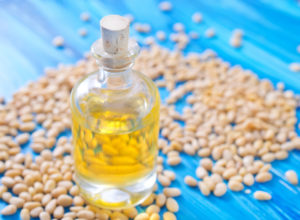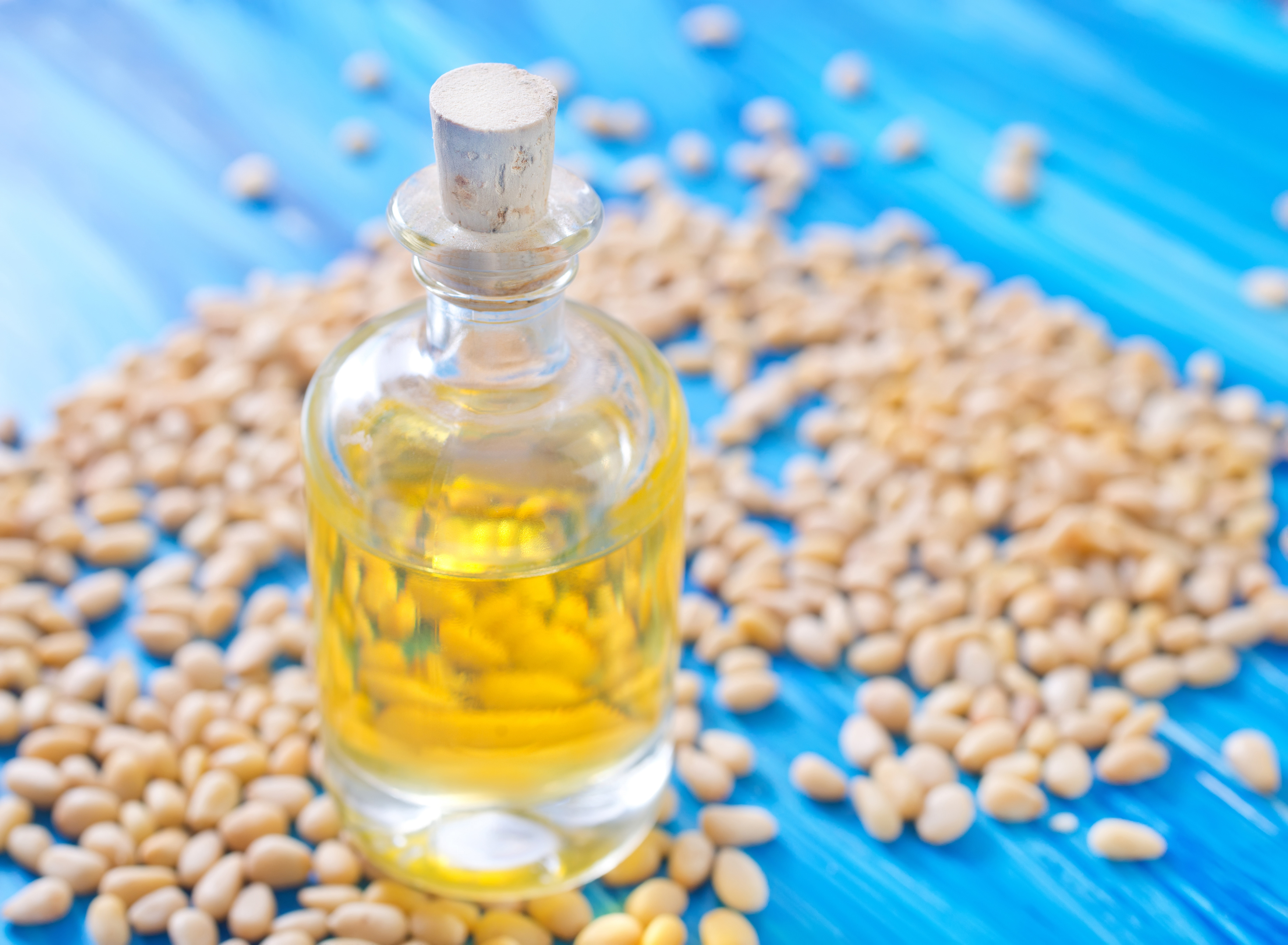
Pine Seed Oil: Is it worth it?
Another seed oil that has been causing a frenzy on the internet is pine seed oil, otherwise known as pine nut oil or cedar nut oil. People have been swearing by it and now more and more people are learning about its uses and benefits. This now brings up the question of “Is it worth it?”
If you want the answer to that question, then you’ll just have to keep on reading to find out everything from where it comes from to the effects it can have on your body and so much more. Pine seed oil benefits for weight loss may be an untapped remedy that can help you shed some extra weight.
Let’s get started.
Where does it come from?
The minute you hear the name “pine seed oil”, you can probably guess that it comes from pine seeds, right? Well, you’re right.
Pine seed oil is extracted from the edible seeds of a variety of pine species which grow in cold, mountainous regions of the world. This practice has been done for generations, predominantly in Europe and Asia, where some of the best pine seed oil comes from. As a matter of fact, the quality of the oil is dependent on the type of pine nut it was extracted from. Siberian pine nuts are renowned for producing the best pine seed oil, as are Korean, Russian and French pine seed oils.
The process of extracting the pine seed oil involves harvesting and shelling fell pine cones, then cold-pressing until oil is expelled. This produces a golden yellow, aromatic oil that is then bottled and put on shelves.
What is it used for?
In the past, pine seed oil was used in France for trading. In Russia, it was first used for cooking. Today, we have found many more uses for pine seed oil and have even incorporated it into their daily lives. Here are a few:
Hair and skincare
Pine seed oil has been used by many years in cold, dry climates to keep skin moisturized and to address certain skin conditions. In these parts of the world, the dry cold air causes the skin to become flaky and chapped. Applying the pine oil also helped to protect the skin from the severe cold due to its warming/insulating effect.
Pine seed oil is also great for massages since it is a biologically active oil. It is very attractive and has a pleasant odor.
Pine seed oil can also be used to detangle hair because of its Vitamin E content. It also makes the hair smooth and shiny and keeps the scalp hydrated. In Siberia, it was also used it for nail care.
Weight loss
Korean and Siberian pine nut oil, in particular, has been used to suppress appetite. This is because it increases the hormones in our brain which tells us that we are full. By doing so, you will feel fuller faster and will eat less, and lose weight as a result.
Treating breast cancer
Studies have shown that the pinolenic acid found within pine seed oil can impede the growth of breast cancer cells. The way it works is by preventing them from moving on to other body tissues and spreading the cancer. Though inconclusive, there is a popular theory that says it may be useful in preventing the spread of other cancers in the body.
Treating hypertension
Though uncurable, hypertension, or high blood pressure, can be managed through medication, stress reduction and a proper diet. Pine seed oil can also help to regulate systolic blood pressure. Just be sure to consult a doctor before starting this natural treatment as the fatty acids and phytonutrients in the oil may have a negative impact when paired with certain medications.
Nutritional facts
100g of pine seed oil contains:
- Energy: 3693kJ/898kca
- Total fat: 99g
- Saturated fatty acids: 7g
- Monounsaturated fatty acids: 25g
- Polyunsaturated fatty acids: 68g
- Carbohydrate: 0g
- Sugars: 0g
- Protein: 0g
- Salts: 0g
- Omega-3: 0.1%
- Omega-6:22.8%
- Omega-9:25%
Vitamins B1, B2, B3, E, and F are all present in pine seed oil, which helps the body to absorb vitamins A, D and K.
Pine seed oil also contains several nutrients such as calcium, cobalt, copper, linoleic acid, magnesium, manganese, oleic acid, palmitic acid, phosphorus, pinolenic acid, polyunsaturated fatty acids, stearic acid, and zinc.
Type of Fat
Pine seed oil is made up of “good”/ heart-healthy fats such as monounsaturated fat (MUFAs) and polyunsaturated fats (PUFAs). When eaten in moderation as a replacement of saturated and trans fats in the diet, this helps to lower cholesterol or at least keep high cholesterol at bay.
Taste and smell
Russians describe their Siberian pine seed oil as having the taste and the smell of the forest. Individuals who have tried it will tell you that is has a strong woody taste and a nutty smell. Its aroma has also been described as being sweet and pleasant.
Smoke point
Pine seed oil has a relatively low smoke point. This means that beyond this temperature, the oil will begin to burn and toxic fumes and free radicals will be released which are harmful to human health. At this point, pine seed oil has no health benefits and is virtually useless.
Pros
Pine seed oil can be a great addition to your kitchen or bathroom cabinet. Here’s why:
- It is nutritious- Pine seed oil is rich in amino acids (proteins), vitamins and fatty acids. This makes it a good source of nutrition, especially for teenagers, children, and pregnant women.
- It has anti-inflammatory properties- Both traditional medicine and modern medicine have concurred that pine seed oil is great for digestive issues and stomach problems, and boosts metabolism
- It can lower cholesterol- In Korea, scientists have proven that pine seed oil can lower cholesterol and by default, high blood pressure.
- It can treat skin problems- Since pine seed oil is full of antioxidants, skin problems or disorders such as eczema, psoriasis, acne, scabies, fleas, and itchiness can all be treated with the oil.
Cons
Up until now, pine seed oil sounds amazing, but we can’t tell you the pros without mentioning some of the cons. The major ones include:
- It can cause an allergic reaction- If you have sensitive skin or an allergy to nuts, you can risk having an allergic reaction both when applied topically or when ingested. This reaction can be anything from a simple rash to anaphylactic shock. Other symptoms include vomiting, swelling, wheezing and stomach pains.
- Low smoke point- Because this oil has a low smoke point, you can take it off your mind as a cooking oil because it will start to burn at very high temperatures.
- Lack of appetite- While some people love this effect of pine seed oil, if you are underweight or suffer from eating disorders, you can experience health problems.
- More expensive- Pine seed oil is more expensive than many other oils so if you are on a budget, you may want to look for a cheaper alternative.
What’s the best way to use it
Pine seed oil’s low smoke point means that frying, stir-frying and any other high-heat methods of cooking food is out of the question. However, it makes for a great finishing oil or topper to add additional flavor to food.
Some bakers use pine seed oil while making bread because it has a preservative effect. Just bear in mind that only a small amount of the oil is needed.
Alternatives
If you find that you are allergic to pine seed oil, then it is probably best that you avoid other edible nut oils.
Other oils which provide similar health and cosmetic benefits include wheat germ oil and flaxseed oil.
Things to note
- When buying pine seed oil, especially online, it is important to read the ingredients along with customer reviews as some companies dilute the oil or use other pine seeds which will not give you the pure quality you are looking for. It is also important to look for any indication that the oil was extracted using the cold-press method. If there are none, then it probably means that chemicals and high heat were involved in the extraction process.
- When applying pine seed oil to the skin, it is better to dilute it to. Pure pine seed oil is very concentrated and can cause skin irritation.
- Store-bought pine seed oil comes with an expiry date, but if you do happen to get some from a local farmer, it can be stored for up to 18 months in a cool, dry place away from direct sunlight. After opening, it is best to use it within 3 or 4 months before its quality diminishes.
- Pine seed oil can be bought in a capsule form if you don’t wish to use it for topical purposes.
Conclusion- Healthy or Unhealthy?
Pine seed oil is a healthy addition to your diet and routine once it is used in moderation.
Since it is so versatile, it is a great purchase and not just a luxury buy. That same bottle can be kept in your kitchen to add to your salads, and you can even add it to a DIY face mask. If you are on a diet, you can take pine seed oil supplements to help you lose weight, and you can add it to hair care products for extra nutrition.
Pine seed oil gets a thumbs up!
